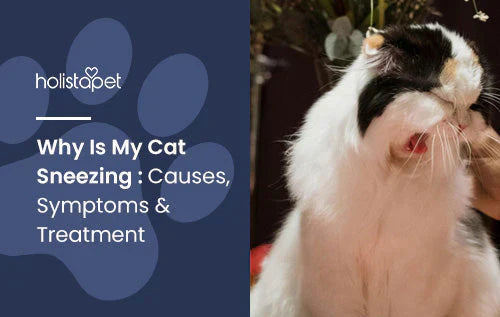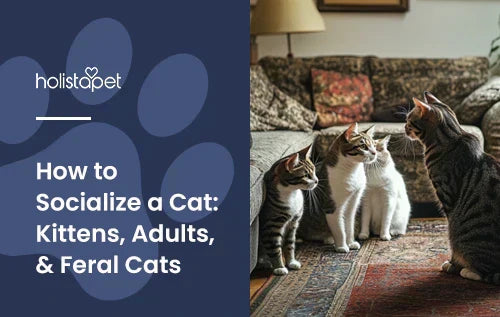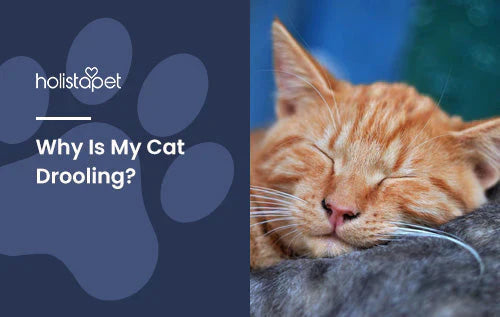A cat sneezing is normal, but when it becomes excessive or chronic, owners should be concerned. In many cases, excessive sneezing has to do with irritants in the air such as perfume, hairspray, or candles. Allergies are another main cause of excessive sneezing in cats. But, there are cases where sneezing is actually the symptom of something much worse. It is important for owners to pay attention to see if their cat is experiencing any other symptoms, such as discharge or a change in appetite.
Why Does My Cat Keep Sneezing?
The occasional sneeze may not seem much, but if you notice your cat sneezing a lot, please see a vet immediately. There can be several causes why your cat keeps sneezing, and they can range from allergies to viral infections:
- Irritants: If there is a pattern to how your cat's sneezes, irritants may be the issue. For example, if your cat seems to sneeze heavily in the morning, it could be a perfume you use that are irritating their nasal passages.
- Allergies: Allergies aren't as common in adult cats as kittens, but they may still be an issue. Some allergies can be due to pollen or mold, but there are circumstances when food or toys cause your cat to have an allergic reaction as well.
- Feline Herpes: Cats can contract herpes from exposure to other cats that are infected. Much like in humans, flare-ups of herpes can be caused by stress. When there is a flare-up, it is easier to spread herpes.
- Feline Calicivirus: This virus is one main cause of upper respiratory infections and oral disease in cats. It is highly contagious. The signs of upper respiratory infections like feline calicivirus include sneezing, congestion, conjunctivitis, and discharge from the nose and/or eyes. In severe cases, this virus can lead to pneumonia.
- Chlamydia Infections: Cats with Chlamydia will show signs of an upper respiratory infection. This includes sneezing, congestion, discharge from the eyes and nose, and wheezing.
- Mycoplasma: Mycoplasma infection in cats is caused by bacteria that functions as a parasite in the blood. This can lead to anemia. Many healthy cats will show little to no symptoms, but kittens and elderly cats are more likely to show severe symptoms.
- Feline Infectious Peritonitis: Feline infectious peritonitis (FIP) is a viral disease caused by strains of a virus named the feline coronavirus. It is primarily shared through feces.
- Bordetella: Bordetella is an extremely contagious bacterial disease of cats. It leads to upper respiratory tract issues and is more prominent in kittens. This disease is largely spread in kennels and pet shelters.

Is Sneezing Normal for Cats?
Yes, it's natural for cats to sneeze. Much like us humans, a sneezing cat may have irritants or allergens infiltrate their nose and mouth, which causes this reaction. Occasional kitten sneezing is safe, but if they are sneezing frequently, there might be another cause. A wide range of different viral, fungal, and bacterial infections can cause sneezing. Many times, a vet will take a swab test of your cat's nose, ears, and mouth to determine if there is an infection or a dental disease.
When Is Sneezing Not Normal?
This depends on your cat. There may be a day where your cats sneezing is more than normal due to a perfume or air freshener in the air. Owners need to be diligent and see if the excessive sneezing continues for longer than a day. Removing possible irritants from the home may help. Try spraying your perfume on in the car, or try not lighting candles for a few days. If your cat is excessively sneezing and it does not stop after a day or two, there may be a deeper issue at play.

Symptoms of Abnormal Sneezing in Cats
There are several excessive and mild symptoms that can accompany excessive sneezing in cats. These symptoms can point to various different infections that your cat may have. Eye discharge and nasal discharge that is yellow or green in color may be a sign of an infection. Other symptoms can include fatigue, excessive drooling, ulcers, swelling, coughing, wheezing, labored breathing, diarrhea, failing coat and skin health, loss of appetite, swollen third eyelid, and depression
Related article: Best Home Remedies for Your Cat's Itchy Skin [Step by Step]
When Should You Go to the Vet?
If your cat is only sneezing randomly, then you should be safe. There can be allergens or irritants in the environment making your pet sneeze. Of course, the best way to test this theory is to remove these irritants from the environment for a few weeks to see if it makes a difference. This can include candles, perfume, air fresheners, and other aerosol products. If you have an outdoor cat, keep him or her indoors for a few days and see if the sneezing abates.
If removing irritants doesn't work, or your cat is sneezing excessively, please reach out to a vet immediately. Also, if there is blood in the mucus, the sneezing is coupled with other respiratory issues such as coughing, wheezing, or discharge you should take your cat to the vet. These are all signs of a more serious medical ailment.
Your vet's options for treatment are boundless. It could be something as simple as adding a dehumidifier to your premises. In other scenarios, your vet may write a script for antibiotics, nasal decongestants, or steroids. In extreme cases, your cat may need surgery.
Related page: CBD products for cats
Final Thoughts
If your cat or cats are sneezing every so often it's normal, remember it's the body's way of getting rid of irritants. Getting rid of allergens or irritants is normal and healthy for your cat. When it becomes excessive or follows a pattern owners should show some concern. Your cat can be suffering from pain due to a medical ailment, and those sneezes are the only sign that owners have. See more info here about Holistapet or keep learning about cat care.


 CBD Oil for Cats - Fast Acting
CBD Oil for Cats - Fast Acting
 CBD Cat Treats - Easy Dose
CBD Cat Treats - Easy Dose
 CBD Calming Chews for Cats - Highly Rated
CBD Calming Chews for Cats - Highly Rated
 CBG Oil for Dogs and Cats - Loved by Thousands
CBG Oil for Dogs and Cats - Loved by Thousands





Leave a comment
All comments are moderated before being published.
This site is protected by hCaptcha and the hCaptcha Privacy Policy and Terms of Service apply.